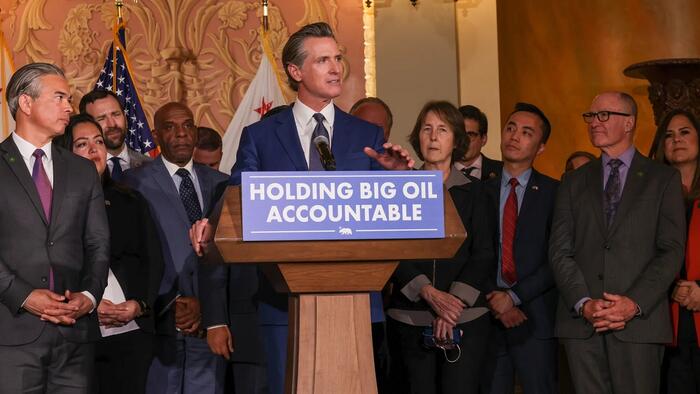


The state of California has projected an image of economic superiority for many years that is simply a facade. Much of the state's GDP (the go-to stat used by Governor Gavin Newsom to deflect any criticism of fiscal mismanagement) is based on a large proportion of federal funding, state welfare spending and a handful of large corporations that are now leaving for greener pastures in red states.
The corporate exodus has been taking place for at least a decade, but it accelerated during the pandemic lockdowns and has not abated since. It would appear that Newsom has finally recognized that his economic position is tenuous at best. His latest "charm offensive" is designed to entice oil companies to stay in the Golden State, with legislation to increase domestic oil production in California through new drilling permits and rehabilitating a defunct offshore pipeline.
The bill will allow for 2000 new oil permits a year over the next 10 years.
Oil company executives, however, are not impressed with the offer. They refer to doing business in California as "25 years of tyranny" and give a number of reasons why they are unlikely to stay.
First and foremost is California's cap and trade laws, which heavily regulate carbon emissions (which have nothing to do with climate change). Cap and trade programs raise costs for oil companies by requiring them to hold pollution permits for their emissions, which can be purchased at auction or from other companies. These costs contribute to higher fuel prices for consumers.
In the same bill that opened up the state for increased oil permits, there is a provision to extend cap and trade on greenhouse gases until 2045. In other words, oil companies can drill more in California, but they're going to have to pay out the nose for every single new well they drill.
State leaders triumphantly celebrated what they declared a historic agreement that they said gives Californians the best of both worlds - stable gas and electricity prices as well as progress toward the state’s ambitious climate goals. But the celebration is premature.
In 2023, Newsom went after "big oil" with a bill meant to monitor and penalize oil companies for "price gouging". The law was a propaganda stunt that scapegoated the oil industry for high prices that were actually caused by rising inflation and California's militant gas taxes.
Oil industry leaders say they can't find employees willing to move to California, due to the politics of the state, the extremely high taxes and the overall cost of living including some of the highest housing prices in the nation. Andy Walz, Chevron's president of Americas products, says:
"It's a tough place to recruit people," he said. "It's a tough place to move employees – a lot of our employees move up through the company, they gain experience in different geographies, different locations, and we have a lot of people who will not move to California. That makes it difficult."
Californians are paying $4.65 for a gallon of regular gasoline while the national average is $3.17 per gallon, according to AAA.
There are 13 refineries currently in operation in the state. When Valero and Phillips 66 shut down theirs, that number will be down to 11. The state had 40 refineries in 1983. Due to the exodus, California has had to rely on foreign sources for three quarters of its oil.
Newsom claims the new permits will stabilize gas prices by increasing in-state oil production, but this assumes that oil companies are willing to stay and operate under cult-like climate pressures. In reality, California's desperate bid to keep these companies around is doomed to failure.
